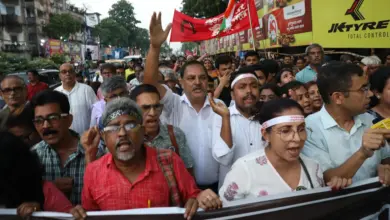
Egyptian media published details of the unified draft law to confront violence against women.
This was submitted by MP Nashwa al-Deeb, a member of the House of Representatives, and more than 60 members of parliament.
The executive regulations should be passed within a period of three months from the date of adopting the draft law.
The draft law contains seven chapters with 50 legal articles.
The first chapter includes definitions of all forms of violence against women, like moral, physical and sexual violence, rape, sexual harassment, sexual exploitation, and crimes of violence against women and girls within the family.
The new draft law introduced for the first time an important definition of digital violence, which is online violence, as well as cyberbullying.
The draft law includes a specific definition of the victim and included all those who suffered physical, mental, psychological or economic harm, or were prevented from enjoying their freedoms or rights through actions, words or cases of neglect that constitute a violation of the applicable laws.
The draft law included penalties for sexual exploitation and wife beating that reaches rigorous imprisonment.
The bill stipulates that complaints related to crimes of violence against women may only be reconciled by the victim in person.
The party before which reconciliation is recognized must ensure that the victim was not subjected to any means of pressure or coercion to reconcile. This should be recorded in an official report.
The second chapter of the unprecedented draft law also included a number of litigation procedures regarding reporting cases of violence against women and the judicial departments competent to consider it, as well as the conditions for reconciliation in crimes of violence against girls or women.
The third chapter of the draft law is about “sexual crimes” including harassment and sexual rape.
As stated in the articles of this chapter, marriage or family relations between the offender and the victim do not give offenders the right to practice physical violence against the victim.
The fourth chapter of the draft law included the crimes of forcing a pregnant woman to abort her fetus, so that whoever intentionally aborts a pregnant woman without her consent by any means shall be punished with rigorous imprisonment.
The bill does not punish the crime of aborting a pregnant woman without her consent in the following cases: if it was for a medical reason or was necessary to preserve the health of the woman, according to a doctor’s testimony, and if the pregnancy was the result of rape, outside marriage or incest.
The fifth chapter is dedicated to the crimes of kidnapping and exploiting women, girls and children. The penalty ranges between three and ten years in prison, and could reach life imprisonment if the crime is associated with raping or sexually assaulting the kidnapped.
The sixth chapter is on crimes of domestic violence against women and girls. The penalty for this type of crime is imprisonment for a period of no less than one year and a fine of no less than LE20,000. In the event of forcing a girl to marry someone for the purpose of exploitation and human trafficking the penalty could reach life imprisonment.
The draft law includes a penalty, left to the opinion of the judge, if the husband engages in violence in the sexual relationship with his wife, whether by force or through sadism.
The bill includes a definition of marital rape, and stipulated the need for a medical report to prove it.
The draft law also included new penalties for the crime of female genital mutilation.
The seventh chapter of the draft law included means of prevention and combating cases of violence against children, girls and women.




